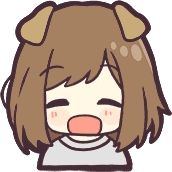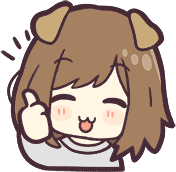A tomahawk is a type of single-handed axe used by the many Indigenous peoples and nations of North America. It traditionally resembles a hatchet with a straight shaft. In pre-colonial times the head was made of stone, bone, or antler, and European settlers later introduced heads of iron and steel. The term came into the English language in the 17th century as an adaptation of the Powhatan (Virginian Algonquian) word.
Tomahawks were general-purpose tools used by Native Americans and later the European colonials with whom they traded, and often employed as a hand-to-hand weapon
Etymology
The name comes from Powhatan tamahaac, derived from the Proto-Algonquian root *temah- ‘to cut off by tool’. Algonquian cognates include Lenape təmahikan, Malecite-Passamaquoddy tomhikon, and Abenaki demahigan, all of which mean ‘axe’
History
The Algonquian people created the tomahawk. Before Europeans came to the continent, Native Americans would use stones, sharpened by a process of knapping and pecking, attached to wooden handles, secured with strips of rawhide. The tomahawk quickly spread from the Algonquian culture to the tribes of the South and the Great Plains.
Native Americans created a tomahawk’s poll, the side opposite the blade, which consisted of a hammer, spike or pipe. These became known as pipe tomahawks, which consisted of a bowl on the poll and a hollowed out shaft.
General Purpose Tool
Many Native Americans used tomahawks as general-purpose tools. Because they were small and light, they could be used with one hand. This made them ideal for such activities as hunting, chopping, and cutting. Both the Navajo and Cherokee peoples used them in this way. The development of metal-bladed tomahawks expanded their use even more. Most Native Americans had their own individual tomahawks, which they decorated to suit their personal taste. As Native American artwork shows, many of these were decorated with eagle feathers, which represented acts of bravery.
Megathreads and spaces to hang out:
- 📀 Come listen to music and Watch movies with your fellow Hexbears nerd, in Cy.tube
- 🔥 Read and talk about a current topics in the News Megathread
- ⚔ Come talk in the New Weekly PoC thread
- ✨ Talk with fellow Trans comrades in the New Weekly Trans thread
- 👊 Share your gains and goals with your comrades in the New Weekly Improvement thread
- 🧡 Disabled comm megathread
reminders:
- 💚 You nerds can join specific comms to see posts about all sorts of topics
- 💙 Hexbear’s algorithm prioritizes comments over upbears
- 💜 Sorting by new you nerd
- 🌈 If you ever want to make your own megathread, you can reserve a spot here nerd
- 🐶 Join the unofficial Hexbear-adjacent Mastodon instance toots.matapacos.dog
Links To Resources (Aid and Theory):
Aid:
Theory:


Do you know what the fuck is happening here? As an actual native American, i was pretty jazzed to see a popping tomahawk thread, but then there’s all this.
Welcome to the “General Mega thread.” Everything is what the fuck is happening here. This is a place to talk about whatever. The poster of the thread chooses a topic they think is interesting but it has little effect on the discussion.
Everything is what the fuck is happening here. This is a place to talk about whatever. The poster of the thread chooses a topic they think is interesting but it has little effect on the discussion. This is where you can get to know your fellow users hopes and dreams and fears. Where you can feel free to be a bit silly, or sad, or serious.
This is where you can get to know your fellow users hopes and dreams and fears. Where you can feel free to be a bit silly, or sad, or serious.
Every few days the mega thread gets a new post and the posters usually like to put the history of someone they’re into or something they think needs more attention in the OP
Anyone else love that this bit is getting to be a regular occurrence?
This is the general megathread, it’s just a space on Hexbear for random casual conversation and one-off comments. Every 2 or 3 days we create a new one with a different topic, so we can all learn a lil something about different indigenous communities or leftist organizations around the world.
Welcome!
Edit: we also have c/indigenous which is a community specifically for and about indigenous communities
There’s also c/em_poc for ethnic minorities and people of colour, which is moderated by the lovely @Angel@hexbear.net and has its own weekly megathread